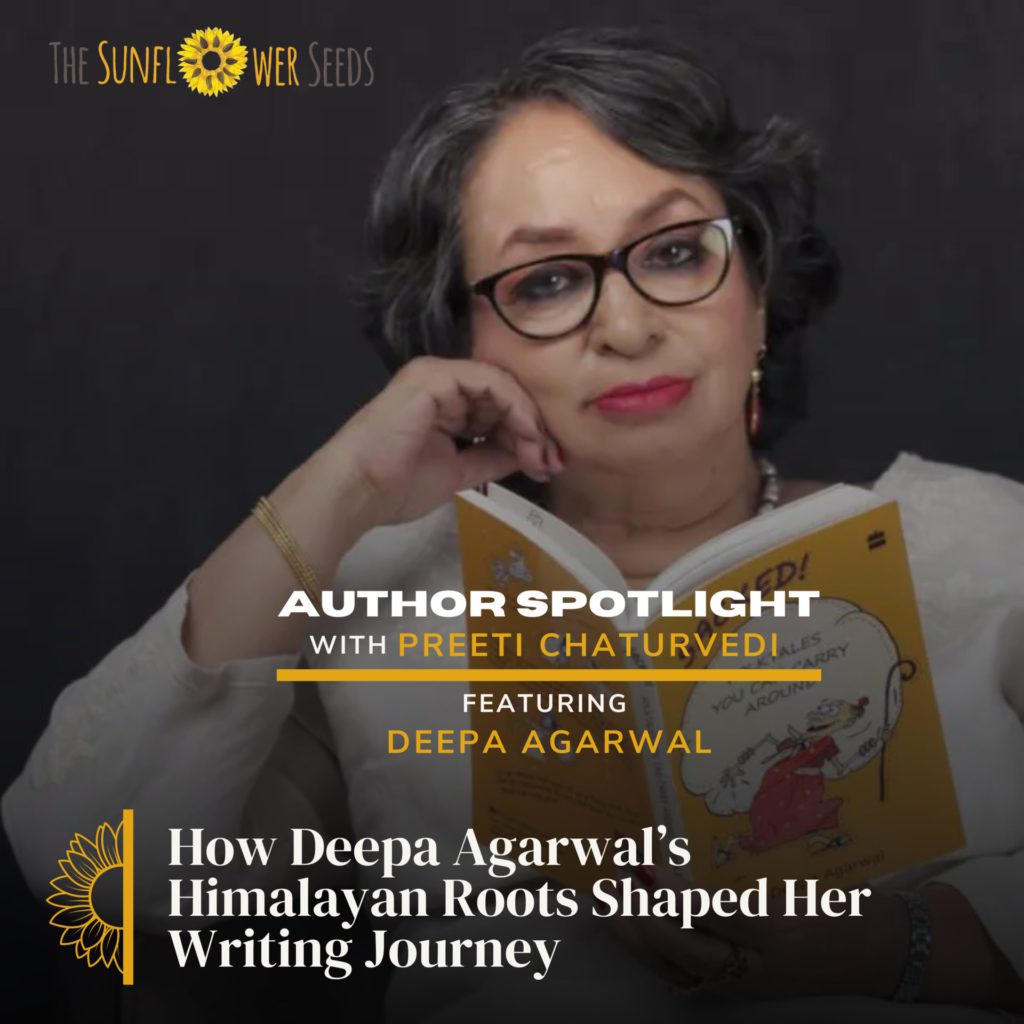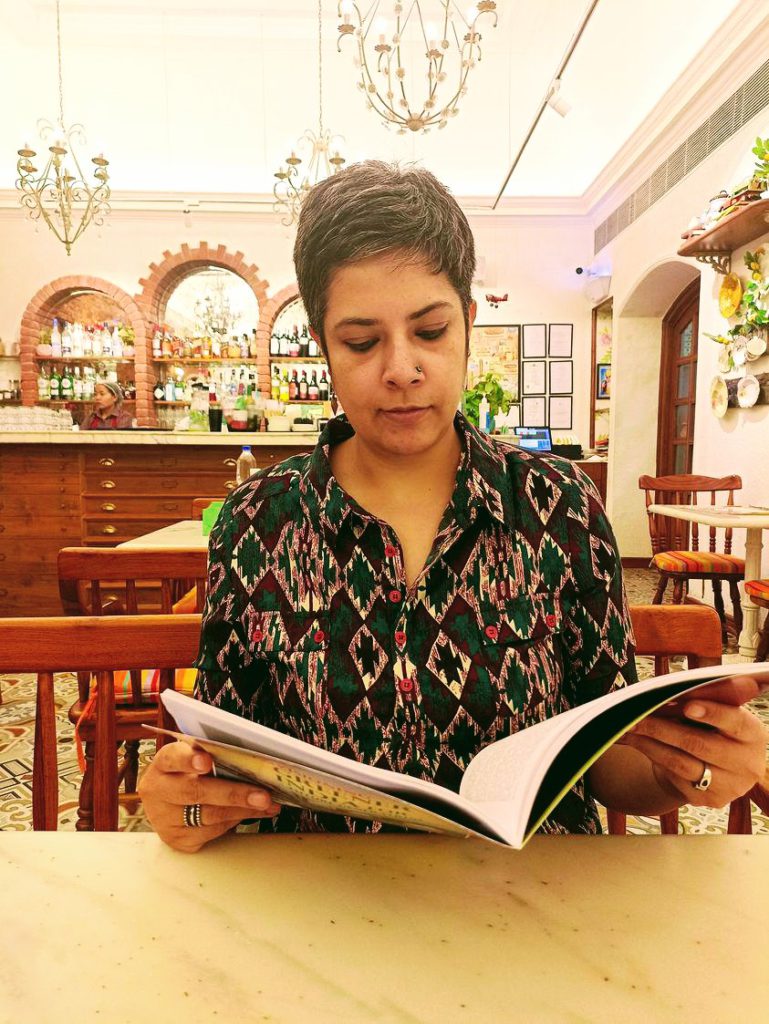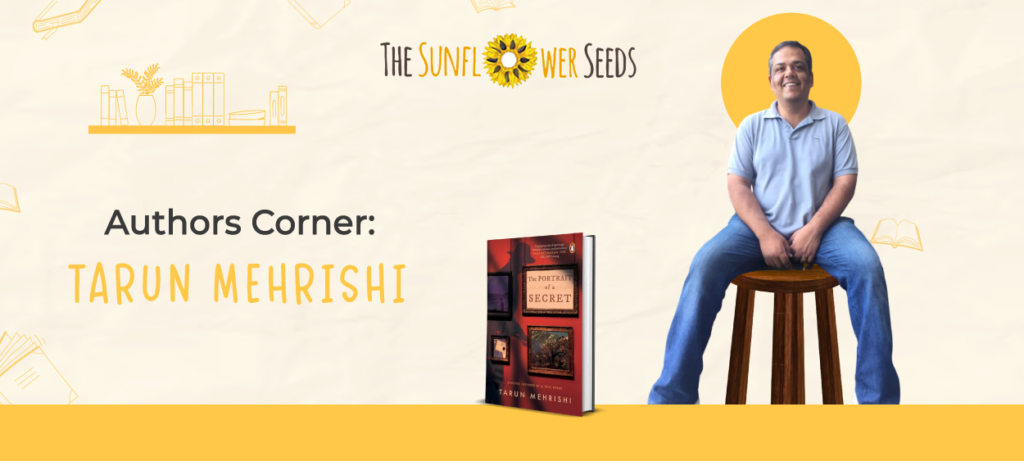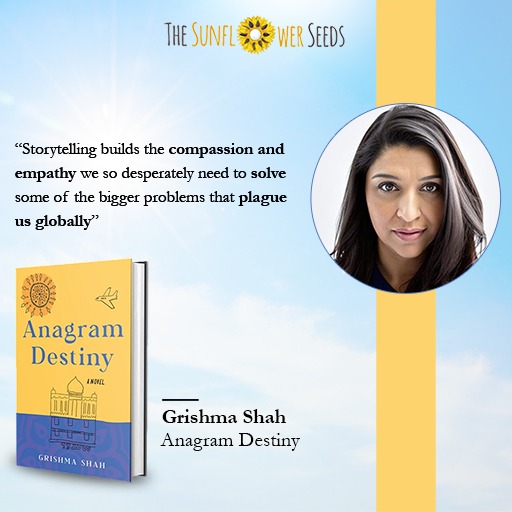
The Sunflower Seeds is delighted to introduce our newest author, Grishma Shah, with whom our readers will develop a deep affiliation with the magic of her debut novel, Anagram Destiny. Rich in storyline and deep insights, here Grishma bares it all about her journey and what inspired her to come up with this book, apart from other challenges in the equally competitive world of publishing.
What was the inspiration for Anagram Destiny?
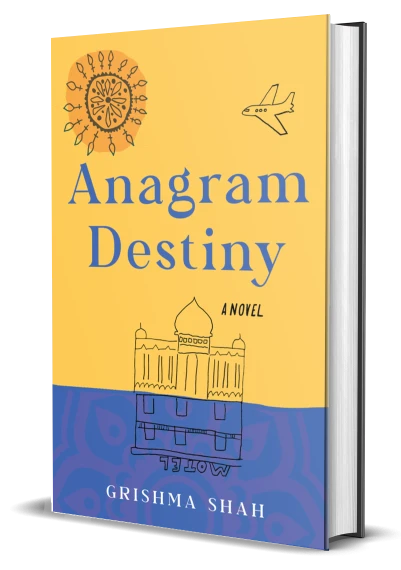
Grishma Shah’s novel, Anagram Destiny, is not a plot alone but an emotional tribute to her parents’ immigrant journey and a reflection of life experiences. Growing up, Grishma was most influenced by her father’s art in oral storytelling and the themes that shaped her book. “There are tidbits of my parents’ immigrant journey throughout the novel, and it really is an ode to their generation,” she says. Grishma was powerfully influenced by stories of her father’s life in India and his struggle when they came to America.
As a professor, Grishma realized that her students could only relate to such sensitive global issues on gender and geographic inequity if she taught them at a personal level. “Storytelling builds the compassion and empathy we so desperately need to solve some of the bigger problems that plague us globally,” she explains. This realization was what inspired her to pen Anagram Destiny—a novel that humanizes these issues as never before, such that they seem achievable by the commoner.
Another strong influence came from her personal experience as an Indian-American woman. The sharp contrast between having spent her childhood days in a native American roadside budget motel and then becoming an expert working on India’s rise post-liberalization laid the foundation for dual settings in her first novel: a roadside motel in Georgia and the luxurious Taj Palace Hotel in Mumbai. “This sharp contrast reflects my own personal experiences and career path working on and studying global issues,” Grishma notes.
Finally, urged on by what she termed a “mid-life success,” Grishma decided to take the plunge and write that long-shelved novel. Encouraged by her husband, Amit, she began outlining themes and stories that would one day register as the book of her dreams: Anagram Destiny.
What is the process of writing a book?

The journey from idea to manuscript is rarely linear, and for Grishma, it was nothing close to a straight line. “My process for writing this book was very scattered,” she admits. Grishma began with just one scene, now a quarter of the way into the book, and wrote asynchronously, piecing together a narrative as inspiration hit her. She first outlined the story of the book chronologically but then wanted to write it with dual timelines, which added so much more depth and an exciting look to the story.
Well, for Grishma, like any first-time author, it would be a learning curve. She completed the first draft and then, naively, began pitching it to agents, realizing it wasn’t ready. She buckled down for two more years of edits, refining the story and re-pitching to agents and contests. Still, her persistence paid off when she made the list of finalists in one such contest, which eventually secured her a publisher for Anagram Destiny.
Did you encounter any challenges during the writing process, and if so, how did you overcome them?
While Anagram Destiny was challenging to write, Grishma has found publishing created even more prominent, more significant barriers. “Writing is a very low-barrier industry—anyone with a pen and paper or laptop can start writing, and I encourage everyone to do so. However, publishing is a very high-barrier industry, primarily because the Big Five publishers dominate traditional publishing, and the doors are adamant to get your work through,” she explains.
Grishma’s experience of almost 150 rejections from publishers and agents resonates across her field, particularly with people from communities that have been underrepresented. She believed in Anagram Destiny and kept revising and pitching the manuscript: “They say the only people who get published are the ones who don’t give up, so keep trudging (and editing, editing, editing)!” Grishma advises aspiring authors.
Then destiny broke in her favor. The winning of this competition had been the turning point; it had opened the fateful doors for Anagram Destiny to finally reach its intended readership.
Conclusion
The journey from dream to reality with Anagram Destiny has been one of tenacity, creativity, and the importance of storytelling for Grishma Shah. She has woven her novel in a way that pays homage to her parents’ immigrant journey and contributes—very personally—to complex global issues.
It is an absolute pleasure for The Sunflower Seeds to serve as the publishing house that brings Anagram Destiny to the world, looking forward to the impact it will have on readers everywhere. Grishma’s story is a testament to the fact that whereas the path to publishing can be very testing at times, it is also so rewarding for those who dare to dream and keep pushing in the face of every oddity.


